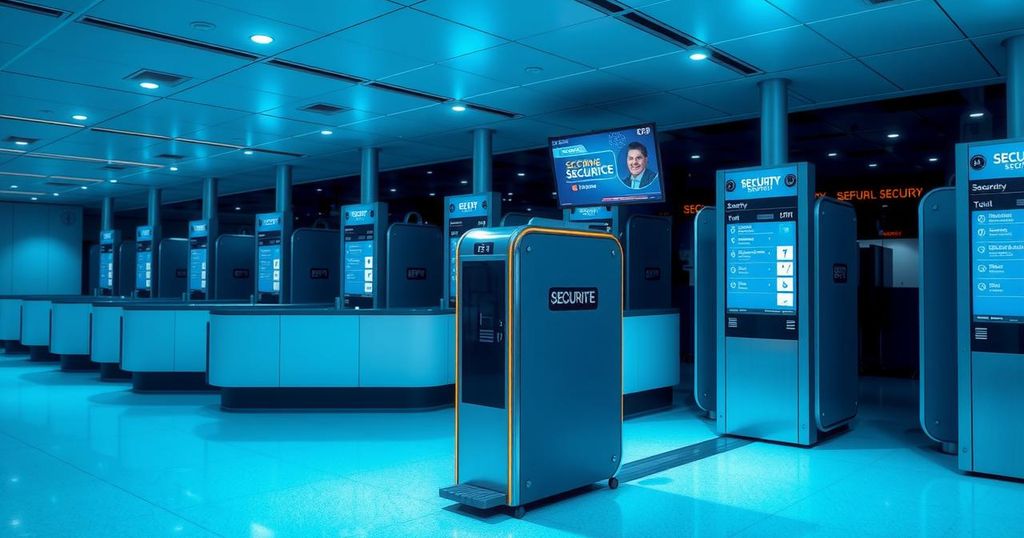Denver International Airport has launched facial recognition technology at 15 boarding gates to speed up boarding for international flights, allowing travelers to bypass traditional document checks. Passengers can choose to opt-out of the system, reverting to manual boarding procedures. Overall support for biometric technology is rising among travelers due to its potential for streamlined processes.
Denver International Airport (DEN) has introduced facial recognition technology at 15 of its boarding gates located in concourses A and C, specifically for international flights. This modernization aims to enhance passenger boarding efficiency by allowing travelers to board without showing their passports or travel documents at the gate. The facial recognition system matches passengers’ biometrics with their stored data in seconds, theoretically improving throughput at busy gates. CEO Phil Washington expressed that this investment reflects a commitment to enhance travel experiences while aligning with federal efforts for secure air transit. Passengers who decline to use the biometric system can still opt for traditional boarding protocols by informing airline personnel or Customs and Border Protection (CBP) agents. However, this will necessitate manual verification of travel documentation. As part of privacy considerations, images of U.S. citizens will be erased within 12 hours after boarding, while images of foreign nationals will be secured within the Department of Homeland Security’s systems. This implementation aligns with a broader trend towards increasing the use of biometric systems across U.S. airports. Currently, data show that the technology is in use at 238 airports for incoming passengers and has been adopted by 49 airports for outgoing international flights. A survey indicated that a vast majority, 79%, of travelers support biometry at Transportation Security Administration (TSA) checkpoints, citing improved efficiency and expedited processing.
Facial recognition technology is increasingly being deployed in airports to streamline boarding processes and enhance security measures. The implementation involves capturing biometric data, which can facilitate quicker verification against pre-stored information. Privacy concerns surrounding biometric systems are prevalent, yet data indicates that the majority of passengers appreciate the efficiencies these systems offer. The initiative at Denver International Airport mirrors a nationwide trend to leverage technology for improved passenger flow, aligning with changing federal regulations regarding air travel safety and efficiency.
The introduction of facial recognition boarding at Denver International Airport marks a significant step towards modernizing air travel. By providing a faster, more seamless process while allowing opt-out options, the airport balances technological advancement with passenger privacy concerns. As airports nationwide continue to incorporate biometric systems, the trend indicates a growing acceptance among travelers, particularly as survey data reflect a strong preference for technologies that enhance the efficiency of airport operations.
Original Source: simpleflying.com






